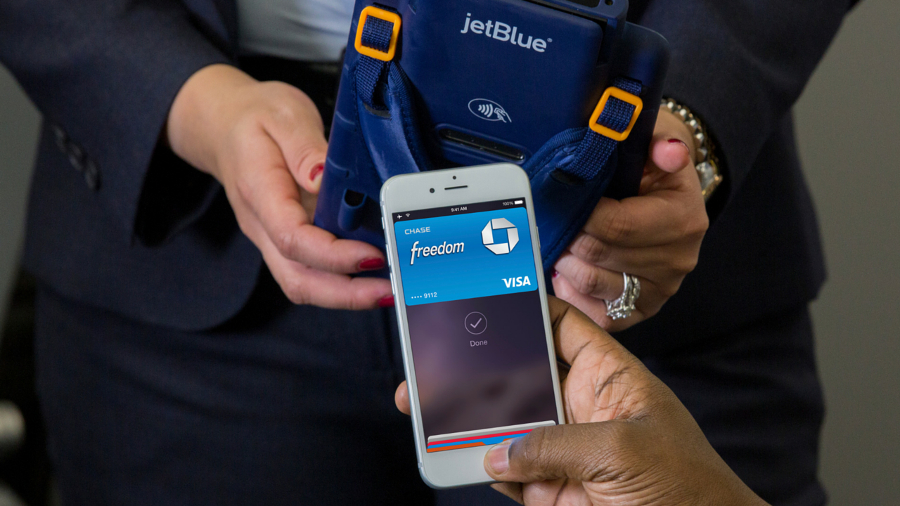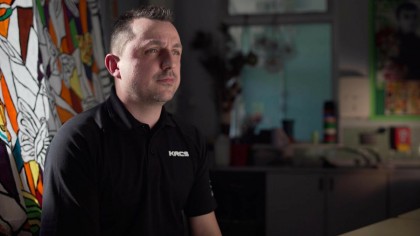Can businesses cope with Apple Pay and the rise of cashless payments?
Cashless payments have overtaken the use of notes and coins for the first time…

Sign up for breaking news, reviews, opinion, top tech deals, and more.
You are now subscribed
Your newsletter sign-up was successful
Cash is dead. Electronic payments are hardly new, but the arrival of Apple Pay in the UK is sure to bring contactless and mobile payments to the fore. It could mean a spike in sales of iPhones and the Apple Watch, though with a significant number of people with the tech already in their pockets, millions are about to give Apple Pay a try.
"Accepting contactless payment, and specifically Apple Pay, is a great opportunity for a business to present themselves as tech-savvy, modern and forward looking," says Phil Woods from Apple Specialists KRCS Group Ltd. "Many people will be looking to take advantage of the features of their new Apple Watch or iPhone 6, and may seek out retailers who can support Apple Pay, so businesses should get decals for their terminals and shop windows advertising that they support Apple Pay."
The view from Denmark
Some countries are far more advanced than the UK and US when it comes to contactless and mobile payments. "Anyone wanting a glimpse of the future of cashless payments need only look overseas to Denmark, which has the lowest cash payment level in Europe and is currently considering removing obligation for some retailers to accept cash at all," says Dan Wagner, CEO and Founder of Powa Technologies, which is working with Denmark's Danske Bank to help it usher in a new level of payments freedom in the country.
Although it will take time for the UK to catch up with Denmark, businesses need to be ready for the new era. "Rather than seeing it as a challenge, they should take it as an opportunity to rethink their strategy," says Wagner. "Taking physical cash out of the equation creates a huge amount of freedom, enabling them to completely restructure the retail experience and do away with cumbersome tills and queues entirely."

Playing catch up
Others think that the UK will catch up quickly. "The predicted 30% decline of cash payments by 2025 is a massive underestimation," thinks Marty Carroll, head of client services at Head London. "With the launch of Apple Pay, we are going to see marked growth in contactless payment happening much faster than predicted – particularly in the UK where the infrastructure already exists wherever contactless payment is offered." Given that 4,000-plus retailers already have contactless terminals, Carroll thinks that they need do no more than contact their payment provider and state that they want to accept Apple Pay.
The cashless economy
Cold hard cash is on its way out, with digital payments now dominant and new tech like Apple Pay and contactless debit cards destined to reinforce that trend. But can companies support it? "This increasing dependence on digital payments should be encouraging merchants and financial organisations to take a hard look at their ability to support electronic payments across their digital supply chain," says Paul Heywood, Managing Director and VP of EMEA, Dyn.
The ever-faster move to digital payments is just the latest salvo; companies are already relying more and more on websites, mobile apps and connected devices. Monitoring, controlling and optimising online infrastructure is now key.
Sign up to the TechRadar Pro newsletter to get all the top news, opinion, features and guidance your business needs to succeed!

Internet performance
People expect to be able to make cashless payments efficiently and quickly, and if that doesn't happen, they may go elsewhere. "Businesses must be able to offer customers a seamless, consistent digital experience, from browsing all the way through to final payment," says Heywood, who stresses the importance of internet performance. "With insight into internet performance, businesses can make informed decisions, which ultimately serve to meet exacting customer expectations by delivering fast and reliable assets via the web," he notes. With a boom in cashless payments and an increase in global competition, offering a fast, consistent and carefully controlled service could be key.
Jamie is a freelance tech, travel and space journalist based in the UK. He’s been writing regularly for Techradar since it was launched in 2008 and also writes regularly for Forbes, The Telegraph, the South China Morning Post, Sky & Telescope and the Sky At Night magazine as well as other Future titles T3, Digital Camera World, All About Space and Space.com. He also edits two of his own websites, TravGear.com and WhenIsTheNextEclipse.com that reflect his obsession with travel gear and solar eclipse travel. He is the author of A Stargazing Program For Beginners (Springer, 2015),
